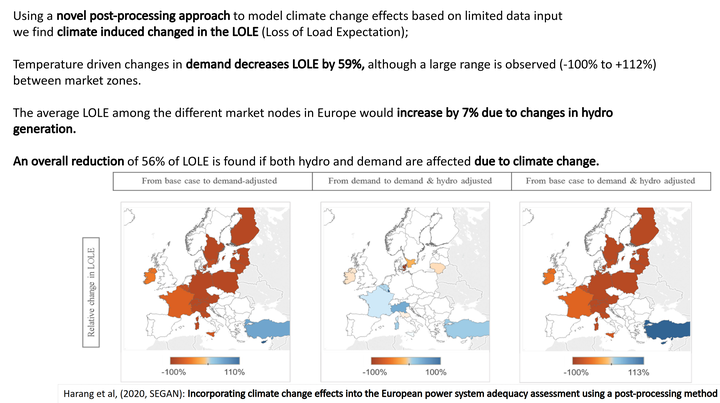Incorporating climate change effects into the European power system adequacy assessment using a post-processing method
 Image adapted from publication
Image adapted from publication
Abstract
The demand-supply balance of electricity systems is fundamentally linked to climate conditions. In light of this, the present study aims to model the effect of climate change on the European electricity system, specifically on its long-term reliability. A resource adequate power system – a system where electricity supply covers demand – is sensitive to generation capacity, demand patterns, and the network structure and capacity. Climate change is foreseen to affect each of these components. In this analysis, we focused on two drivers of power system adequacy: the impact of temperature variations on electricity demand, and of water inflows changes on hydro generation. Using a post-processing approach, based on results found in the literature, the inputs of a large-scale electricity market model covering the European region were modified. The results show that climate change may decrease total LOLE (Loss of Load Expectation) hours in Europe by more than 50, as demand will largely decrease because of a higher temperatures during winter. We found that the climate change impact on demand tends to decrease LOLE values, while the climate change effects on hydrological conditions tend to increase LOLE values. The study is built on a limited amount of open-source data and can flexibly incorporate various sets of assumptions. Outcomes also show the current difficulties to reliably model the effects of climate change on power system adequacy. Overall, our presented method displays the relevance of climate change effects in electricity network studies.